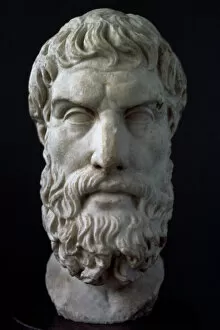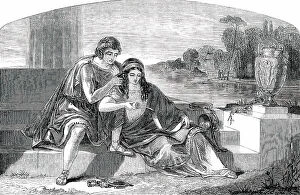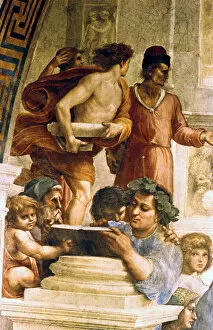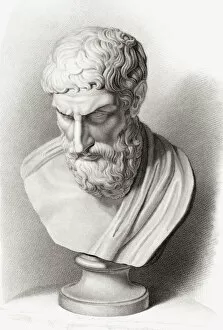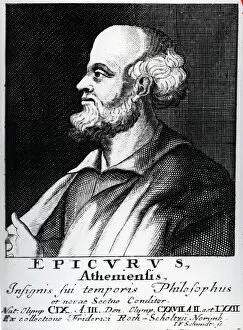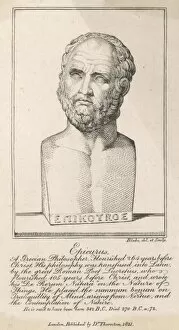Epicureanism Collection
"Epicureanism: Embracing Pleasure and Tranquility in Ancient Philosophy" Epicureanism, a school of thought founded by the ancient Greek philosopher Epicurus (341-270 BC
For sale as Licensed Images
Choose your image, Select your licence and Download the media
"Epicureanism: Embracing Pleasure and Tranquility in Ancient Philosophy" Epicureanism, a school of thought founded by the ancient Greek philosopher Epicurus (341-270 BC), has left an indelible mark on the history of philosophy. Represented by various artistic depictions such as busts and engravings, Epicurus' teachings continue to resonate with individuals seeking a balanced approach to life. The bronze bust of Epicurus found in Rome serves as a tangible reminder of his intellectual legacy. With its intricate details capturing the essence of this influential thinker, it stands as a testament to his enduring impact. Similarly, the bust of Metrodorus of Lampsacus (the Younger) reminds us that he was one of Epicurus' closest followers, contributing significantly to the development and dissemination of his ideas. Epicureanism revolves around finding pleasure and tranquility through moderation rather than indulgence. It emphasizes living in harmony with nature while cultivating meaningful relationships and pursuing intellectual growth. This philosophy rejects excessive desires or fears that disrupt inner peace. Influenced by these principles, Raphael's engraving portrays Epicurus as an esteemed figure whose wisdom transcends time. Through Johann Fredrich Schmidt's meticulous craftsmanship, we witness how scholars throughout history have sought to immortalize this great philosopher. Epicurean philosophy encourages individuals to find joy in simple pleasures like good food, friendship, and contemplation. It advocates for self-reflection and introspection as means to achieve personal fulfillment. By embracing moderation instead of excesses or extremes, adherents strive for balance between physical gratification and mental well-being. Today, many still find solace in Epicurean ideals amidst our fast-paced world filled with distractions. The pursuit of pleasure without sacrificing long-term happiness remains at the core of this philosophical tradition. As we gaze upon these captivating representations from different eras – be it ancient Roman copies or Renaissance engravings – we are reminded of the enduring relevance of Epicureanism.

